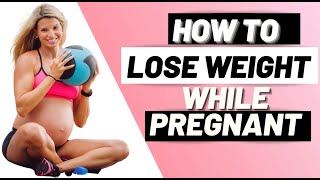
If you're wondering how to lose weight with diabetes, you've come to the right place. A good place to start is moderate exercise. This is 30 minutes per day, five days a semaine. Although this may seem difficult, there are ways to remain active throughout your day. Walking after dinner is a great way to keep active, as recommended by the American Diabetes Association. This is a great way for you to achieve the ADA goal of watching no more than 10 hours of TV per week. It is possible to park further away from restaurants, use the stairs, or avoid watching too much TV.
Hydration is key
Diabetic sufferers can reap many health benefits from proper hydration. Hydration is known to control blood sugar levels. Diabetes Daily forum members recommend staying hydrated. Some claim that extra water thins blood and lowers glucose levels. No matter the cause, staying hydrated is a good way to improve metabolic health and diabetes management. In this article, we'll discuss some of the benefits of staying hydrated.

Cutting back on calories
One of the best ways to lose weight with diabetes is by modifying your diet. Keep your diet low in calories. Substitute low-calorie sweetened beverages with low-calorie, or calorie-free drinks. To support you in your diabetes journey, you can sign up to receive a weekly free micro-lesson. These micro-lessons provide short, calorie-free and useful tips that you can apply throughout the week. A healthy diet should consist of fruits and vegetables, as these are low in calories and high in nutrients.
Insulin causes unexplained weight losses
Sudden undiagnosed weight gain with diabetes is a common problem. Type 1 diabetes is the most common type. It accounts for between 5% and 10% of all cases. This type can lead the body to develop insulin resistance. It causes high blood insulin levels which can increase hunger. This condition can also result in overeating, which leads to weight gain.
Consult a bariatric physician
If you have diabetes you can visit a bariatric surgeon to help you lose weight. If you meet certain criteria for weight-loss surgery, the NHS may refer you. These criteria are comparable to international guidelines. For example, for people from South Asia with type 2 diabetes, the BMI threshold for bariatric surgery is significantly lower than that for white people. If you meet the criteria for surgery, your doctor will conduct an assessment to determine whether or not you should have it.

Getting supervised weight loss
If supervised weight loss programs are combined with diabetes care, you can lose between 2 and 5 pounds per week. People who are supervised by a doctor report significant lowerings of blood sugar and improvements in their blood pressure. Some people find that they are more rested and less dependent on blood sugar medication. Although the results of weight loss supervised are impressive, it is not for everyone.
FAQ
Can I eat fruits during intermittent fasting?
Fruits are good for you. They contain vitamins, minerals, fiber and antioxidants. But, they can also contain sugar that can spike blood glucose levels. This can lead to insulin resistance, weight gain, and even diabetes. You can lose weight by following an IF diet. Make sure to eat low glycemic fruits like apples, pears and berries.
What Amount Of Exercise Is Needed For Weight Loss?
Many factors influence how much exercise is needed to lose weight, such as age, gender, body size, and weight. However, generally speaking, most people need at least 30 minutes of moderate physical activity five days per week.
The American College of Sports Medicine recommends 150-minutes of moderately intense aerobic activity every week. It should be spread over three separate days.
For example, if you want to lose 10 pounds, aim to do 300 minutes of moderate-intensity exercise each week. This includes activities like jogging or running, swimming laps and biking.
For those just starting out, you might consider 20 minutes of vigorous activity every other week. These activities could include sprints and lifting weights.
Aerobic exercise is a great way to burn calories and build muscle mass. Muscle burns more calories per calorie than fat. So building muscle can help you lose weight faster.
Is there any side effect to intermittent fasting?
Intermittent fasting does not have any known side effects. You might have minor problems if your plan is not well thought out.
For example, if you skip breakfast, you might be irritable all day long. Headaches, dizziness, fatigue and muscle cramps are all possible.
These symptoms often disappear within a few hours.
What foods should I consume during an intermittent fast to lose weight
Cutting out carbs is the best way to lose weight. This means avoiding bread, pasta, rice and potatoes as well as other carbohydrate-based foods.
It is important to eat less protein, as it will keep you fuller longer. So you won’t feel hungry as often.
Instead, choose foods rich in healthy fats. These foods will keep you full for hours after you eat them.
You should ensure you drink plenty of water. Water is important for your body's ability to stay hydrated and helps you burn more fat.
This could be because you find you really crave these foods when fasting. However, you don't have the right to succumb to these cravings. If you do this, you might gain more weight that you have lost.
Keep an eye on the amount of food you eat throughout the day to avoid overeating. Instead of reaching for another snack, sip a glass of water when you feel hungry.
This may seem counterintuitive. However, it's been shown to help you slim down. In a study published by Obesity, it was found that people consumed less calories if they drank plain water instead of sugary drinks.
Drinking plain water also reduced hunger. Don't drink sweetened beverages if your goal is to lose weight. Stick to water.
Weight loss doesn't require you to restrict your intake of calories or eat less. Instead, you should make small lifestyle changes.
Try swapping out your usual breakfast sandwich in favor of a bowl o' oatmeal. Consider swapping out your afternoon cookie in favor of a piece if fruit.
These simple changes will help you shed weight quickly and without spending a lot of time in the kitchen.
Is there a difference between intermittent fasting, calorie restriction, and intermittent fasting?
Calorie restriction is a way to eat less than your body needs. Intermittent fasting is different because it doesn't involve restricting calories. It focuses on eating fewer calories during the day.
Intermittent fasting works better because it allows for you to enjoy your favorite foods without feeling guilty.
Both methods have pros and cons. Decide which one you prefer.
Statistics
- According to a study sponsored by the American Council on Exercise, a person weighing around 140 pounds (64 kg) would burn 108 calories at a 30-minute beginner's Pilates class or 168 calories at an advanced class of the same duration (26). (healthline.com)
- Another study found that 24 weeks of weight training led to a 9% increase in metabolic rate among men, which equated to burning approximately 140 more calories per day. (healthline.com)
- One study in 9 active men found that HIIT burned 25–30% more calories per minute than other types of exercises, including weight training, cycling, and running on a treadmill (18Trusted Source (healthline.com)
- According to Harvard Health, it's estimated that a 155-pound (70-kg) person burns roughly 112 calories per 30 minutes of weight training (5). (healthline.com)
External Links
How To
How to Lose Weight Fast Without Exercise
To lose weight quickly, eat fewer calories that you burn. This will allow your body to begin burning stored fat for energy. You will see some muscle shrinkage if your body doesn't consume enough calories. While you can still lose weight, if your diet doesn't include exercise, you'll likely lose even more muscle mass.
To lose weight quickly and without exercising, you need to cut down on your calorie intake. It is common for people to believe that they must cut down on their food intake in an effort to lose weight. If you are looking to lose weight, it is important to consume fewer calories per day than you burn. So how much should you eat every day? It depends on what kind of activity you engage in daily. For example, someone who walks 3 miles daily would only need around 2,500 calories daily. An individual who works all day at a desk would consume around 1,600 calories each day. For someone who exercises often (e.g. lifting weights), the daily intake would be around 1,600 calories.
To lose excess weight, you need to cut back on your caloric intake. Many people believe that they need to eat less because they feel starving. However, this is not the truth. Your body doesn't care if your hunger pangs are gone or not. It just wants to be healthy. In order to lose extra weight, it is essential that you keep track of how many calories you consume. You can monitor your calorie intake with many online apps. You can use these apps to monitor your calorie intake, such as MyFitnessPal, Calorie Counter and LoseIt!